Problem-Solving Skills Reading Fiction Worksheets for Ages 8-9
5 filtered results
-
From - To
Unlock your child's potential with our engaging "Problem-Solving Skills Reading Fiction Worksheets" designed for ages 8-9. These interactive worksheets encourage young readers to think critically as they navigate through captivating stories. Each worksheet focuses on enhancing problem-solving abilities by challenging students to analyze characters' dilemmas and devise possible solutions. Your child will enjoy practicing comprehension, reasoning, and logical thinking in a fun, literature-based context. Perfect for classroom use or at-home learning, these worksheets foster a love for reading while building essential life skills. Dive into a world of imagination and critical thinking—nurture resilient problem solvers today!
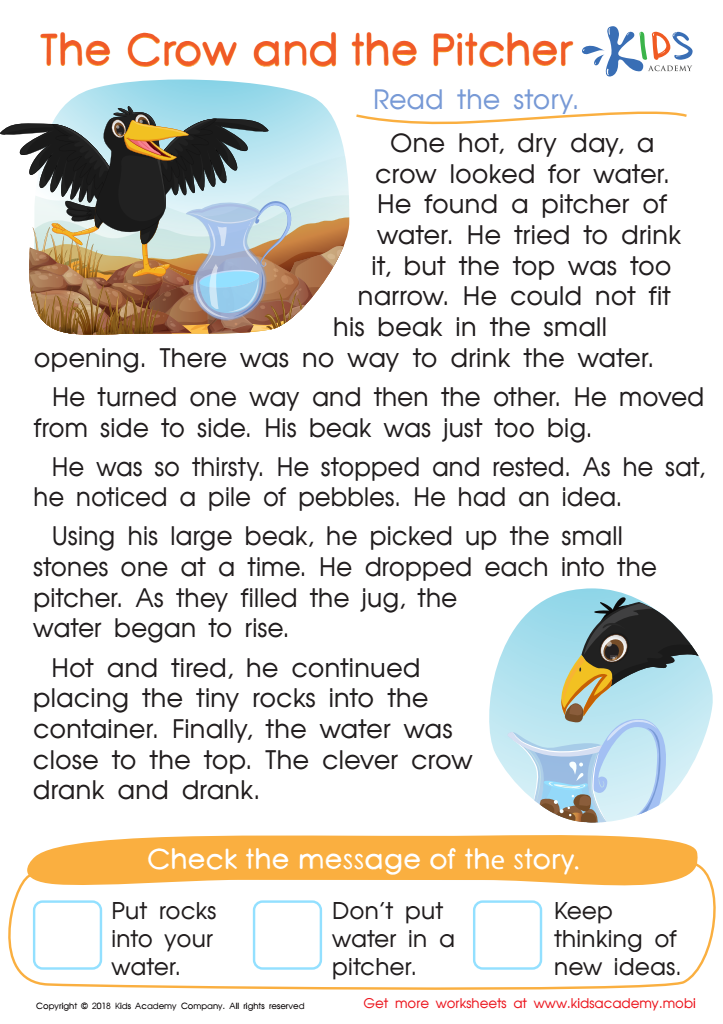

The Crow and the Pitcher Worksheet
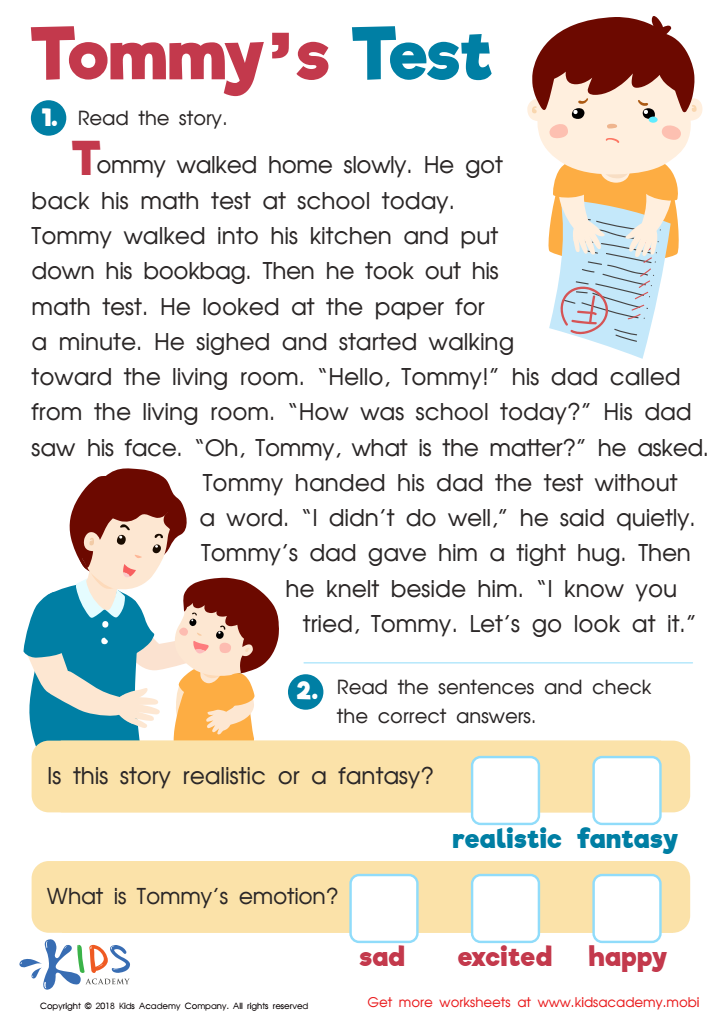

Tommys Test Worksheet
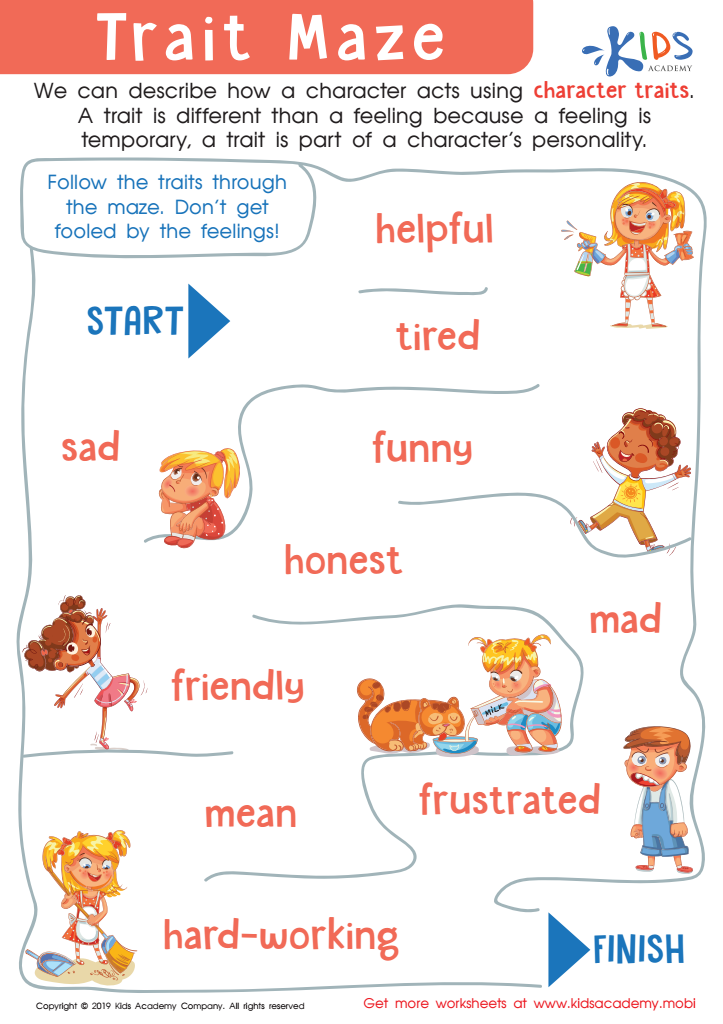

Trait Maze Worksheet
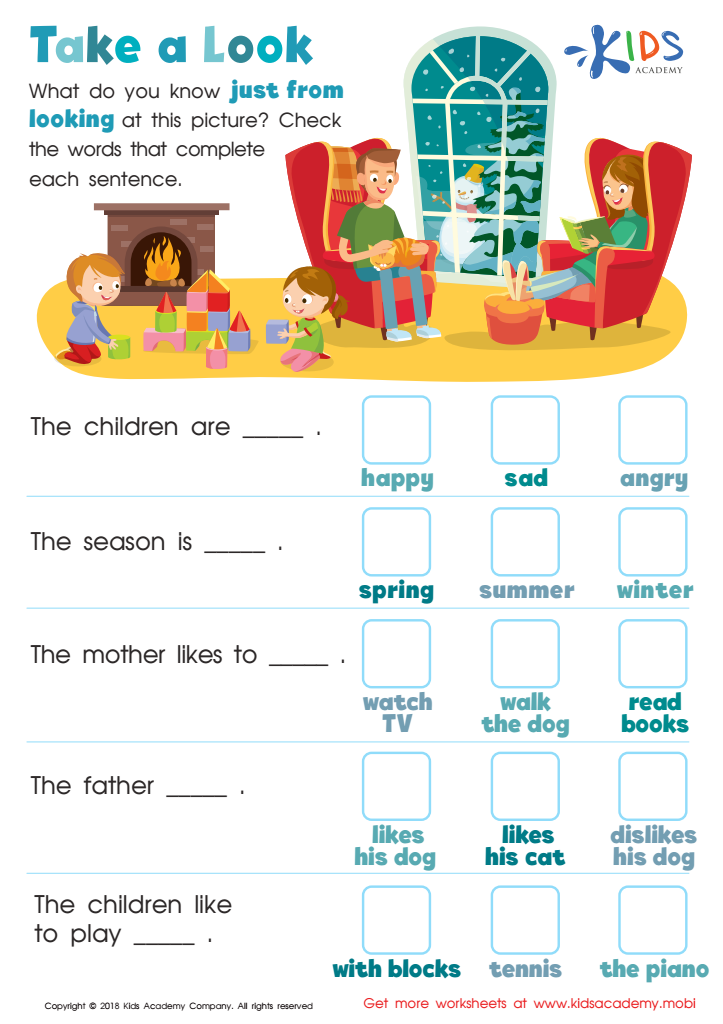

Take a Look - Part 1 Worksheet
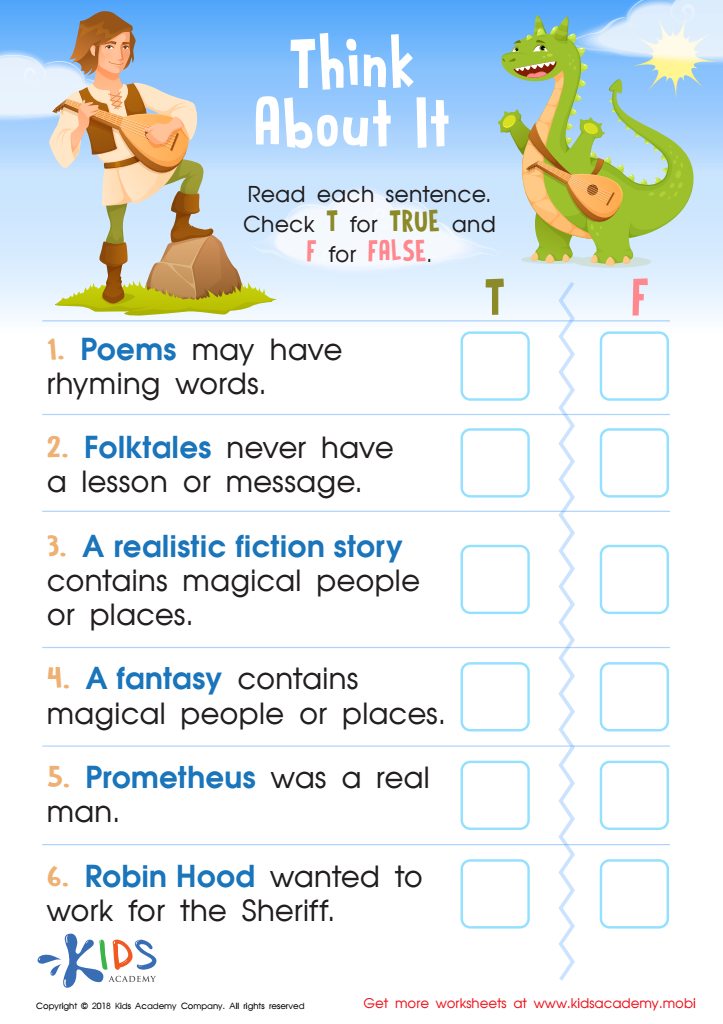

Think About It: Assessment Worksheet
Parents and teachers should prioritize problem-solving skills in children aged 8-9, particularly through reading fiction, because these skills are essential for cognitive and social development. At this age, children are refining their critical thinking abilities and learning to navigate complex situations. Reading fiction introduces them to diverse scenarios and characters, encouraging empathy and understanding multiple perspectives. As children engage with plots that involve conflict and resolution, they naturally learn to identify problems, consider possible solutions, and analyze outcomes.
Additionally, fiction stimulates creativity, allowing children to envision alternative realities and outcomes, which is crucial for innovative thinking. Furthermore, discussing the narratives can enhance comprehension and communication skills as children articulate their thoughts and opinions on characters’ decisions.
Incorporating problem-solving exercises within the context of stories not only makes learning enjoyable but reinforces essential life skills. By recognizing the value of fiction in teaching problem-solving, parents and teachers can create engaging reading experiences that foster critical life skills, preparing children to face real-world challenges with confidence and resilience. Ultimately, reading for problem-solving promotes a love of literature while equipping children with the tools necessary for their academic and personal growth.
 Assign to My Students
Assign to My Students




.jpg)















